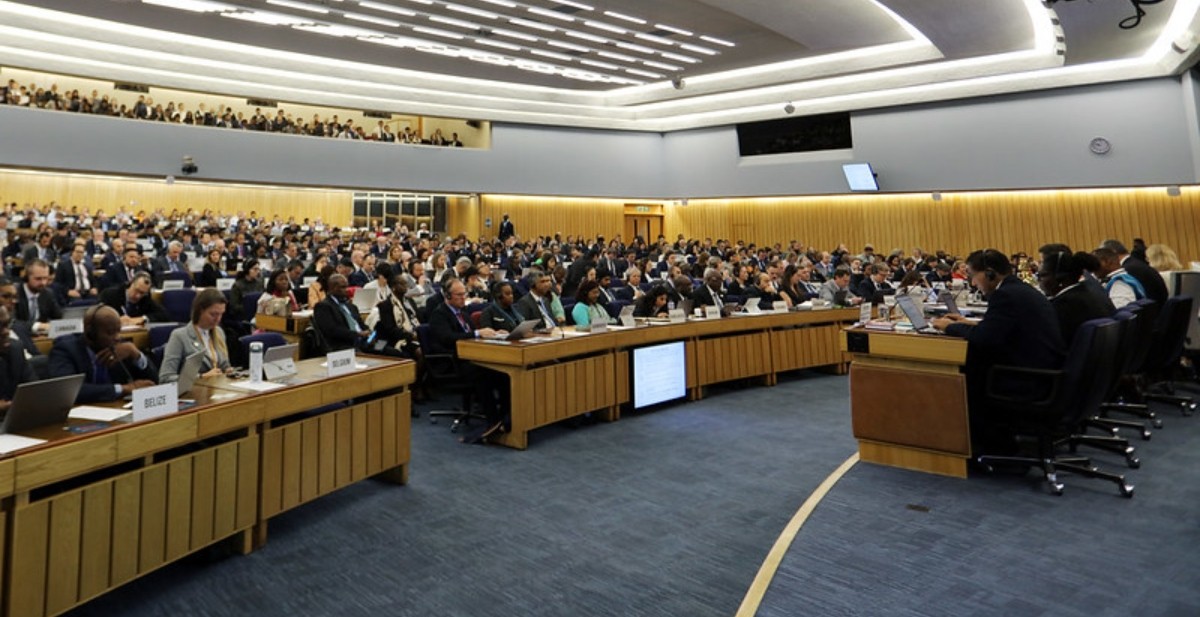Decarbonisation in doubt?

IMO's Net-Zero Framework adoption delayed by a year, but all is not lost
By Carly Fields
The path to net-zero emissions for the global shipping sector hit a significant roadblock last Friday, as a scheduled Extraordinary Session of the International Maritime Organization’s (IMO) Marine Environment Protection Committee (MEPC/ES.2) concluded with a decision to adjourn, deferring the adoption of the crucial Net-Zero Framework (NZF) for one year.
The policy measures, which had been agreed upon in principle in April 2025, are seen as essential for reducing shipping emissions and kick-starting the industry's energy transition.
The meeting's failure to complete the next milestone toward the entry into force of the NZF sent shockwaves through the industry and climate advocacy groups, with experts describing the outcome as "catastrophic for confidence".
The dramatic conclusion came after a vote was called for by Saudi Arabia to adjourn the meeting for one year. The motion passed with 57 countries accepting it, forming a majority of those present and voting.
The delay was not necessarily a reflection of a lack of consensus in April, but rather the result of intense external pressure.
A number of countries changed their positions relative to the vote at MEPC 83 in April 2025. Dr Tristan Smith, professor of Energy and Transport at UCL Energy Institute Shipping & Oceans Research Group, suggested that "well-publicised threats from the United States, including tariffs and reprisals for any country that supported the Framework, and related pressure, were effective at changing positions".
Alison Shaw, IMO manager at Transport & Environment, echoed that, noting that the week “has also shown that there is a clear desire to clean up the shipping industry, even in the face of US bullying”. Anaïs Rios, senior shipping policy officer at Seas At Risk, pointed out that with "countries like Saudi Arabia leading efforts to delay, few expected a postponement to prevail but here we are".
The Clean Shipping Coalition (CSC) expressed its "huge disappointment" in the decision. John Maggs, the CSC’s representative at the IMO, said: “By delaying adoption of its Net Zero Framework, IMO has today squandered an important opportunity to tackle global shipping’s contribution to climate breakdown”. He added that with "climate warming impacts being felt everywhere on Earth, kicking this decision down the road is simply evading reality".
Impact on decarbonisation timelines
The NZF is designed to align with the IMO’s unanimously adopted Greenhouse Gas (GHG) Reduction Strategy from MEPC 80 in 2023. That strategy commits the organisation to absolute GHG emission reductions of 20-30% in 2030 and 70-80% in 2040, on a pathway to reaching net-zero emissions by or around 2050.
Jesse Fahnestock, Global Maritime Forum director of decarbonisation, said that the adjournment "is a disappointing setback for shipping, but not the end of this journey”,
but emphasised that the "adjournment for a full year creates serious challenges for meeting the timelines in the Net-Zero Framework agreed in April and will make delivery of the sector’s decarbonisation targets even more challenging".
The NZF itself includes a global fuel standard (GFS) to gradually reduce the allowed polluting content of ship fuel, and a mechanism for setting prices on the GHG ships emit to encourage emission reductions. Jenny Helle, expert on decarbonisation of aviation and shipping at Carbon Market Watch, added that this "opportunity for progress was lost" due to pressure from the Trump administration and major fossil fuel producing countries. Seas at Risk’s Rios added that “getting the Net-Zero Framework adopted in this MEPC ES.2, however imperfect, was fundamental for shipping to stay within reach of its own decarbonation targets”.
Focus shifts
Despite the delay, the work on the framework's foundations will continue. Dr Annika Frosch, research fellow at UCL Energy Institute Shipping & Oceans Research Group, confirmed that "the process remains underway, with key technical guidelines now the focus before potential adoption in 2026". The upcoming IMO Intersessional Working Group 20th session will proceed as planned. These guidelines will "specify important details on definitions, calculations, and methods for determining how the policy incentivises and evaluates different technology and fuel options needed for decarbonisation, how the fund will be set up and run, and how its key parameters will be revised on an ongoing basis".
The Global Maritime Forum stressed the immediate need to complete the design of rewards for Zero and Near-Zero Fuels, define the use of funds for a just and equitable transition, and provide clarity on emissions accounting. The GMF believes that "clear and robust guidelines can help pave the way for adoption next year".
The outcome at the IMO also validates further work on regional and national regulation of international shipping.
UCL’s Dr Smith suggested that this result means "those with the means must step up and lead more than ever". Dr Pinar Langer, research fellow at UCL Energy Institute Shipping & Oceans Research Group, viewed the year ahead as "a vital window for constructive engagement and for strengthening the evidence base to ensure that when the framework is finally adopted, it is both equitable and actionable across diverse national contexts".
In the meantime, the Clean Shipping Coalition has called on member states to use the time to strengthen the framework, specifically urging them to "focus all their attention on transforming the CII into the energy efficiency powerhouse needed to quickly right this ship" at MEPC 84 in April 2026.
While the delay may have left the sector "drifting in uncertainty", according to Transport & Environment’s Alison Shaw, the challenge remains for climate-ambitious countries to "build a strong majority in support of meaningful decarbonisation”, as "no single flag should dictate the world’s climate course".
As the sector looks ahead, and in the absence of a global regulation, the actions of industry, nations and regions will continue to play “a crucial role in sustaining progress towards that goal", she concluded.